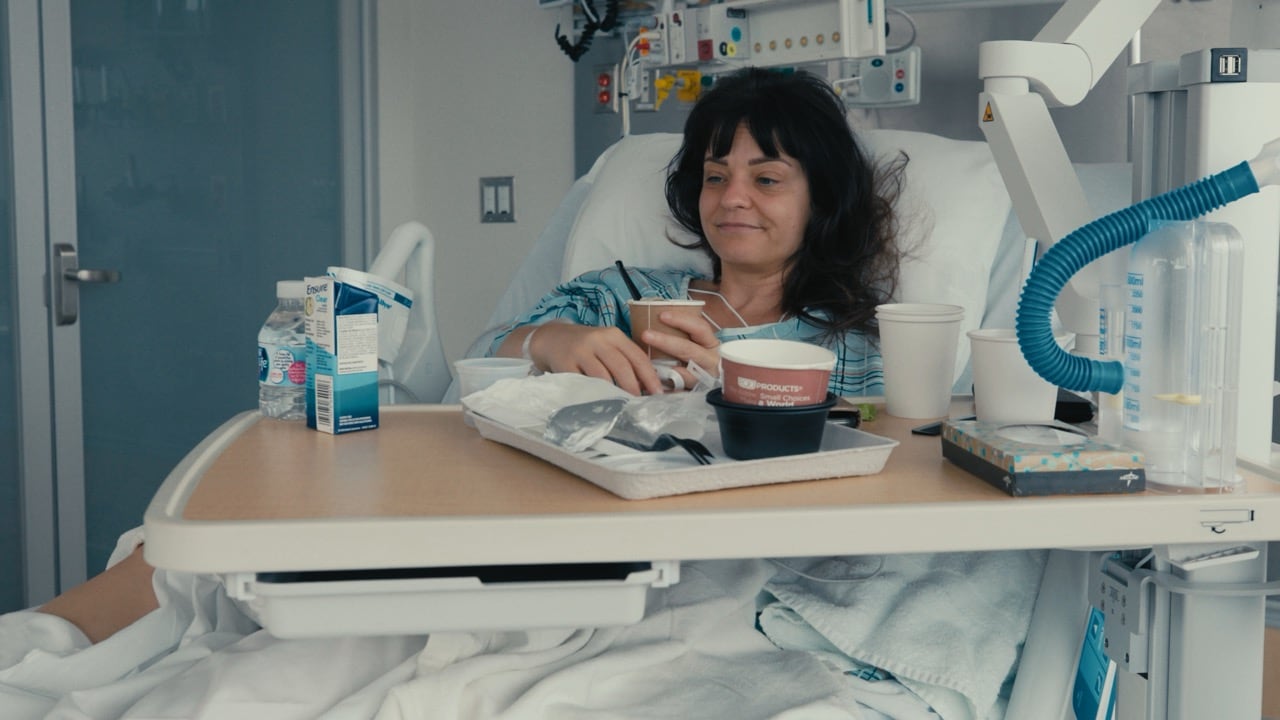Acclaimed documentarian Penny Lane has spent thousands of hours probing the raison d’etre of such eclectic figures as Nixon’s presidential aides, Kenny G and benevolent Satanists. She’s good at shaping documentary subjects into characters, she admits. Acting as her own subject, though?
“‘Embarrassing’ is the word that comes to mind,” Lane says of her latest film. Confessions of a Good Samaritan chronicles her 2019 kidney donation to a stranger and the vast, inexplicable gulf between good deeds and good feelings.
Confessions is an eminently curious project that begins with a skirmish between one woman’s principles and self-doubt, but soon ventures into the historical and philosophical constellations surrounding organ donation: from bioethical pitfalls to measuring empathy with a brain scan to questioning whether media spectacle can bridge the approximately 80,000 annual shortfall in kidney donations in the United States.
Before Confessions of a Good Samaritan screens at Tomorrow Theater on Sunday, Sept. 29, we spoke with Lane about the “embarrassment tax” of personal films and the enduring mysteries of altruistic behavior.
WW: Because of how Confessions provokes the audience to define altruism, are the conversations you’re having about this doc different than for your previous films?
Penny Lane: I don’t know. The film did make me feel pretty resolute that none of us know why we do what we do. We are very good at coming up with post hoc explanations.
So you feel it’s mostly a mystery why you donated a kidney?
I really do. I think there is a simple answer: It seemed like a nice idea to help somebody; someone else was gonna die, and this wouldn’t kill me. But then, there’s just, like, a million other reasons. I think what you see in the film is a person who comes to terms with that mystery and doesn’t need to justify or explain anymore.
How was the experience of being interviewed by your crew?
Really, the strange experience was editing it. People don’t talk a lot about character development or characterization in documentaries because there’s an assumption that you find a person and you just show them how they are. That you’re not making choices. But, of course, you’re making choices.
When it was me, I completely lost all of my perspective on the character. I’m just rambling about my grandmother having schizophrenia. Like, is this relevant!?
To you, what’s the most interesting impediment to humans behaving altruistically?
I think the most interesting impediment is the one that is the most alien to me personally, which is a kind of disgust reflex. That donating an organ is against God or a violation of their bodily integrity, or the idea of putting some part of them in someone else just makes them really grossed out. It’s so fascinating because we all think we’re the same, essentially, and that’s the basis of empathy. But in reality, our internal universes are just so diverse.
At any point, do you fleetingly wish you knew who received your kidney?
I have no regrets about wanting to be anonymous. The question of why, we could answer in different ways. I might be trying to avoid social discomfort. The other high-minded reason is…there’s this idea in bioethics called “the tyranny of the gift.” It’s the idea that some gifts are too big and you could never repay them. The joke is always, what do you get [your kidney donor] for Christmas? Which is funny, but also real.
Did your health insurance cover the donation?
The recipient’s health insurance pays for a donation. In most cases, that ends up being Medicare or Medicaid because almost every [recipient] gets stuck on dialysis for years and years and isn’t able to work.
When you decided to step in front of the camera, did you take inspiration from other documentarians, whose styles you wanted to emulate, or even avoid?
In the latter camp, it’s almost a cliché to say I didn’t want to be like Super Size Me. Not to dis [Morgan Spurlock], who died recently. I didn’t want it to feel like a stunt. Of course, there will still be people who think it’s a stunt no matter what I say. But I’ve always been inspired by filmmakers like Agnès Varda and the way she’s able to infuse her films with joy. And I took a lot of inspiration from Kirsten Johnson, who made a film (Dick Johnson Is Dead) about her dad dying…how to balance humor and existential questions.
When you say that some people will look at this as a personal stunt, is there almost a shame tax you pay to get this story into the world and possibly inspire more donations?
It’s always embarrassing to make a film, frankly. In this case, the trade-off was knowing that I could probably save lives and make an interesting work of art. But in order to do that, I had to put myself out there in this way that I had never really done. I don’t know how people make personal films over and over. I wouldn’t count on me doing this again any time soon.
SEE IT: Confessions of a Good Samaritan, not rated, screens at Tomorrow Theater, 3530 SE Division St., 503-221-1156, tomorrowtheater.org. 7 pm Sunday, Sept. 29. $15. All ages.

